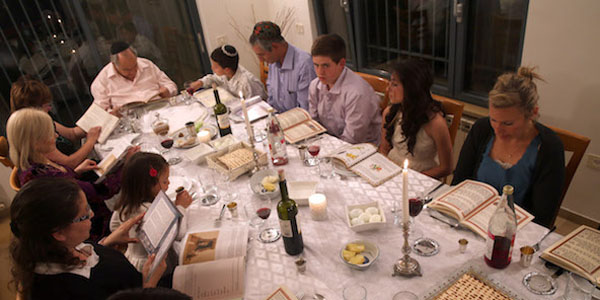Leviticus 23:15-25 Click here for Bible Verses

Today’s passage is Leviticus 23:15-25. Let’s go!
Leviticus 23:15-22 (NIV)
15 “‘From the day after the Sabbath, the day you brought the sheaf of the wave offering, count off seven full weeks.
16 Count off fifty days up to the day after the seventh Sabbath, and then present an offering of new grain to the LORD.
17 From wherever you live, bring two loaves made of two-tenths of an ephah of fine flour, baked with yeast, as a wave offering of firstfruits to the LORD.
18 Present with this bread seven male lambs, each a year old and without defect, one young bull and two rams. They will be a burnt offering to the LORD, together with their grain offerings and drink offerings–an offering made by fire, an aroma pleasing to the LORD.
19 Then sacrifice one male goat for a sin offering and two lambs, each a year old, for a fellowship offering.
20 The priest is to wave the two lambs before the LORD as a wave offering, together with the bread of the firstfruits. They are a sacred offering to the LORD for the priest.
21 On that same day you are to proclaim a sacred assembly and do no regular work. This is to be a lasting ordinance for the generations to come, wherever you live.
22 “‘When you reap the harvest of your land, do not reap to the very edges of your field or gather the gleanings of your harvest. Leave them for the poor and the alien. I am the LORD your God.'”
On verses 15-22: Leviticus 23 is basically the Israelites’ event calendar, listing out all the biggest holidays that God wanted the Israelites to celebrate during the year. It starts with the weekly Sabbath day, meant as a day of rest (Leviticus 23:3). Then there’s the Feast of Unleavened Bread, also called Passover (Leviticus 23:4-8), meant to commemorate the day when God spared (“passed over”) every firstborn Israelite male by sacrificing a lamb instead and had everyone eat bread made without yeast in preparation for their swift escape out of Egypt. Then there’s the Feast of Firstfruits (Leviticus 23:9-14), which is all about giving God the first part of the harvest, recognizing that their land belongs to God and that God is their provider. Some consider the Feast of Firstfruits part of the Passover since the Feast of Firstfruits happens during the Passover.
This leads us to verses 15-22, which describe the Feast of Weeks. What is the Feast of Weeks? The Feast of Weeks also known as Pentecost. Pentecost was one of the big three festivals in the Jewish calendar (the other two being the Feast of Unleavened Bread and the Feast of Tabernacles).
When the grain was ready to be harvested each year, the Israelites would take the first batch of grain and offer it to God (Leviticus 23:9-14). 50 days (7 weeks) after this grain offering was Pentecost (The word “Pentecost” comes from the Greek for “the 50th day”).
The original purpose of Pentecost was to thank God for His blessings, and in particular for the harvest He had given that year. In this way Pentecost was like the Jewish version of Thanksgiving.
It’s fitting and awesome that centuries after Moses wrote about Pentecost in Leviticus 23, God chose Pentecost to be the day that He would send His Holy Spirit to His church (Acts 2:1). After all, what greater blessing can we as Christ followers receive than His Holy Spirit?
Let’s thank God for sending His Holy Spirit to live in us, to be with us, to help us understand the Word of God, to experience God’s presence, to comfort us and to point us to Jesus.
May today and every day be Pentecost for you — a time to experience God’s blessings and to give thanks for His blessings, especially His Holy Spirit. May the Holy Spirit’s comfort, peace, and counsel be with you greatly in this time.
Leviticus 23:23-25 (NIV)
23 The LORD said to Moses,
24 “Say to the Israelites: ‘On the first day of the seventh month you are to have a day of rest, a sacred assembly commemorated with trumpet blasts.
25 Do no regular work, but present an offering made to the LORD by fire.'”
On verses 23-25: Verses 23-25 describe the Feast of Trumpets, a day of rest when the Israelites would gather to worship God and trumpets would be blasted.
From all these festivals it is clear that God doesn’t just want us to go through life just working ourselves to the bone and barely surviving. Rather, God made us to rest, to rejoice and to remember His goodness in our lives. May you schedule regular times to do just that: to rest, to rejoice and to remember God’s goodness.
Heavenly Father, thank you that You don’t want us just to go through life working ourselves to the bone and barely surviving. You made us also to rest, to rejoice and to remember Your goodness in our lives. So may we be intentional about resting, rejoicing and remembering so that we would live life to the fullest, as You designed it to be. In Jesus’ name, AMEN!

